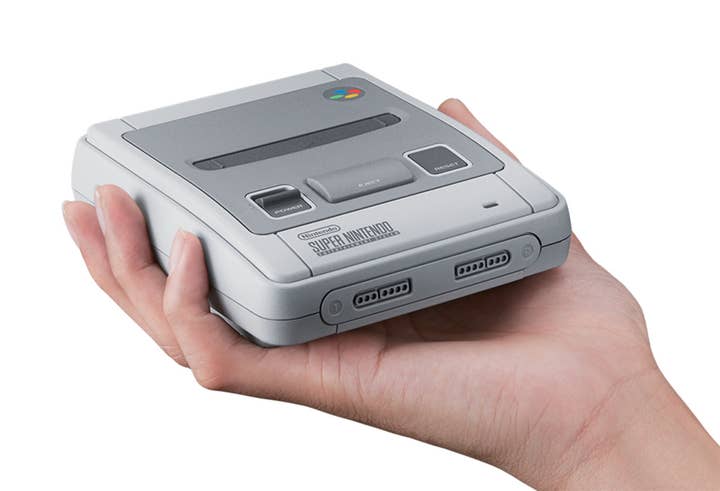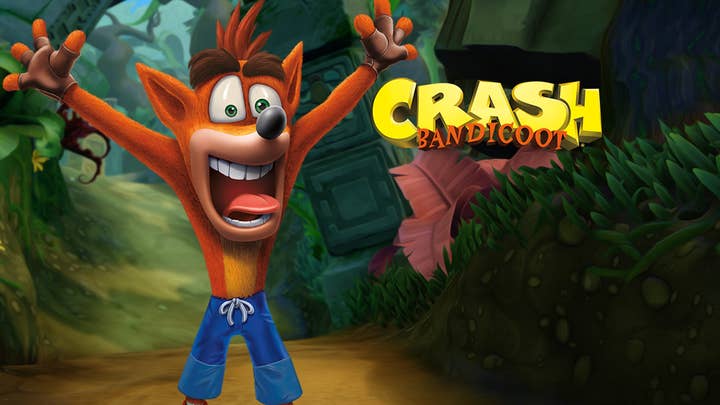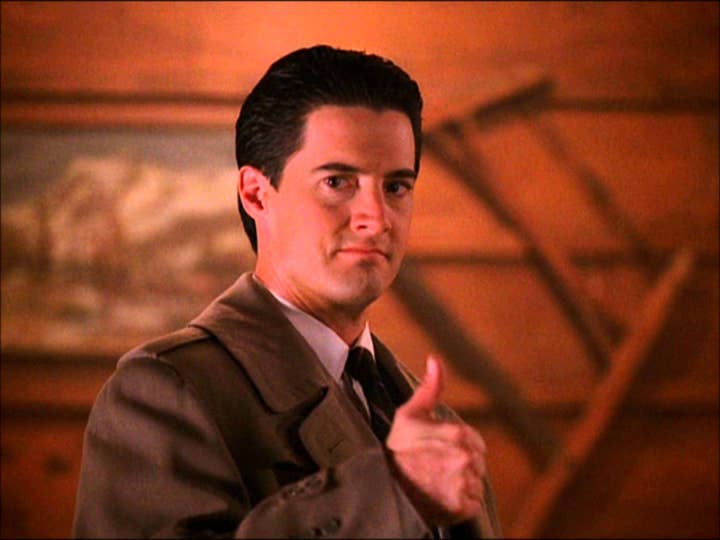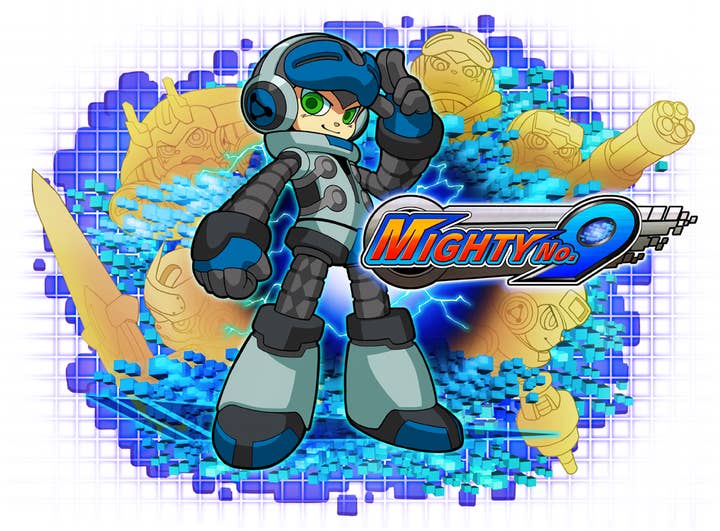Is the games industry nostalgia gold rush here to stay?
SNES Mini, Crash Bandicoot, Sega Forever, Wipeout, Xbox Originals… what next for the industry's 1990s obsession?
I was told off this week.
I had been repeating that this summer for games offers little outside of some decent Nintendo titles.
"You keep forgetting Crash Bandicoot," said my retail friend.
I laughed. "Sure, it's a nice piece of nostalgia," I reasoned. "But it's hardly going to set the market alight."
"Pre-orders are brilliant," came the reply. "We've upped our order twice. I think it's going to be the biggest game of the summer."
I shouldn't be surprised. We've written extensively about the marketplace's current love of nostalgia, and that trend only seems to be accelerating. In the last two weeks alone, we've seen the news that original Xbox games are coming to Xbox One, the reveal of the Sega Forever range of classics for smartphones, and now the best-selling SNES Mini.

The trend isn't new. Classic re-releases have been standard for over a decade. However, the recent surge in nostalgia can be traced back to the onset of Kickstarter and the indie movement, which brought with it a deluge of fan-pleasing sequels, remakes and spiritual successors.
The trend reached the mainstream around the 20th anniversary of PlayStation, with Sony tapping into that latent love for all things PS1. And today, nostalgia is a significant trend in video games. Look at this year's line-up: Sonic Mania, Yooka-Laylee, Super Bomberman, Wipeout, Crash Bandicoot, Thimbleweed Park, Micro Machines, Metroid II... even Tekken, Mario Kart and Resident Evil have found their way to the top of the charts (even if they never really went away).
It's not just software, either. Accessories firms, hardware manufacturers and merchandise makers are all getting in on the act. I even picked up a magazine last week (on the shelves of my local newsagent) dedicated to the N64. This is the industry we live in.

Nostalgia has manifested itself in several different ways. We've seen re-releases (Xbox Originals, Sega Forever, NES Mini, Rare Replay), we've seen full remakes and updates (Crash Bandicoot, Final Fantasy VII, Resident Evil 2), plus sequels and continuations (Elite Dangerous, Shenmue 3). We've seen a plethora of spiritual successors (Yooka-Laylee, Bloodstained, Thimbleweed Park) and we have also witnessed old-fashioned game elements re-introduced into modern titles (split-screen multiplayer, for instance).
It's not just games. We've recently seen nostalgia-tinged TV such as Twin Peaks, Stranger Things and X-Files, plus the cinematic return of Ghostbusters, Baywatch, and Jurassic Park. Yet this trend isn't so new for film and TV (or music, either). And that's because they're older mediums. The demand for nostalgia tends to come from those aged 30 or above, and with video games being such a young industry, we're only starting to see the manifestation of this now.

It's perhaps also more significant in games because of just how different the experiences of the 1990s are to what we have today. In terms of tech, visuals, genre and connectivity, video games have moved so quickly. We simply don't get many games like Crash Bandicoot or Wipeout anymore, which makes the demand for them even more acute.
Can it last forever? Or is this destined to be another gaming gold mine that gets picked to death? It's difficult to say. Nostalgia isn't like MMOs or futuristic shooters. This isn't a genre, but an emotion. A 'sentimental longing for a period in the past'. In theory, the clamour for old games and genres should get broader. In ten years time, those brought up on a diet of DS and Wii will be approaching 30. They'll be reminiscing of the times they spent on Wii Sports and Viva Pinata. And the nostalgia wheel turns again.
Nevertheless, what we're starting to see now is changing expectations of consumers. No longer are they pandering to every Kickstarter that promises to resurrect a long lost concept (sorry Project Rap Rabbit), and they will not tolerate a nostalgic releases that fails to deliver (sorry Mighty No.9). Lazy ports or half-hearted efforts will not win you any fans. If you want good examples of how to do it, look at Nintendo with the inclusion of Star Fox 2 in the SNES Mini, or the documentaries hidden in Rare Replay, or the special PS1-style case that Sony created for the new Wipeout. This is the games industry and the same rules apply. You cannot get away with rubbish.

Of course, big companies can't live off nostalgia alone. Nintendo can't build a business from just re-selling us Super Mario World (even if it seems to try sometimes). These moments of retro glory can often be fleeting. Will a new lick of paint on Crash Bandicoot revitalise the brand and deliver it back to the mainstream? It's not impossible, but unlikely. More often than not you see a brief surge in gamers reminiscing over a time gone by, and then the IP drifts back to the era from which it was plucked. Musical comebacks are often short-lived and movie remakes are, typically, poorly received.
Yet there are exceptions every now and then. Major UK 1990s pop group Take That made its big comeback in 2006, but it did so with a modernised sound that has seen the band return to the top of the charts and stay there for over 10 years. In 2005, the BBC's Doctor Who returned after 16 years. It was faster paced and far more current, and it remains a permanent fixture on Saturday night TV.
And last year's Pokémon Go, which stayed true to the IP whilst delivering it in a new way and through new technology, has elevated that brand to the heights not seen since the late 1990s.
"Nostalgia is a seductive liar, that insists things were far better than they seemed. To be successful with it in the commercial world, you need to keep that illusion alive"
They say nostalgia is a seductive liar, that insists things were far better than they seemed. To be truly successful with it in the commercial world, you need to keep that illusion alive. You must create something that looks and sounds like it comes from a different era, but actually plays well in the modern age. And that's true whether it's Austin Powers or Shovel Knight.
Indeed, nostalgia isn't always about the past, it can help take us into the future. One unique example comes in what Nintendo did with The Legend of Zelda: A Link Between Worlds. The company altered the traditional Zelda formula with that 3DS game, and made it more palatable to fans by dressing it in the same world as 1991's A Link To The Past. It worked, and set the company up to take an even larger risk with its seminal Breath of the Wild.
If the SNES Mini taught us anything, the clamour for all things 1990s remains strong. For developers and publishers who were smart enough to keep hold of their code from that era, they may well reap the benefits.
However, there's a broader market opportunity here than just cashing in on past success. There's a chance to resurrect IP, bring back lost genres, and even rejuvenate long-standing brands in need of innovation.
It's a chance for the games industry to take stock and look to its past before embarking on its future.
